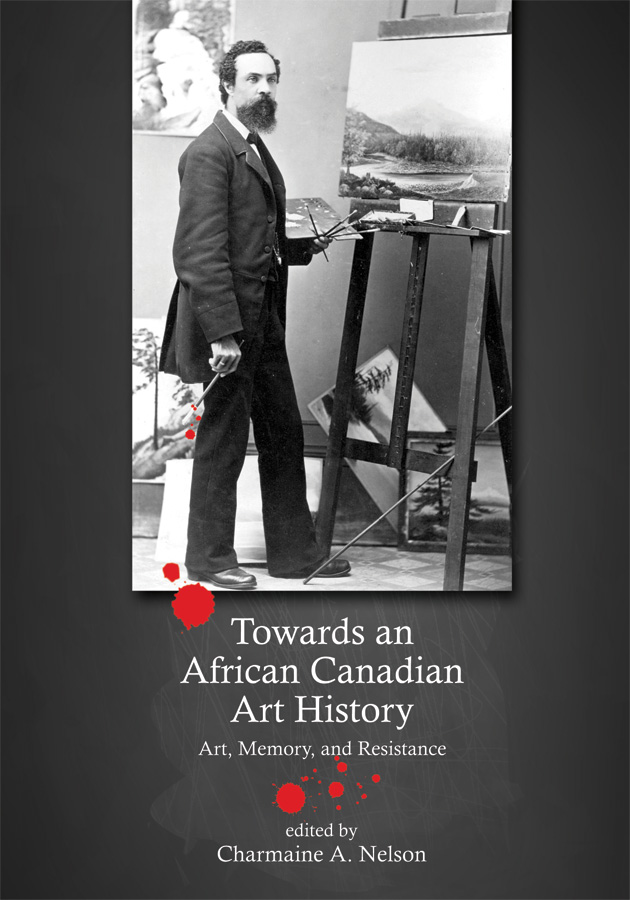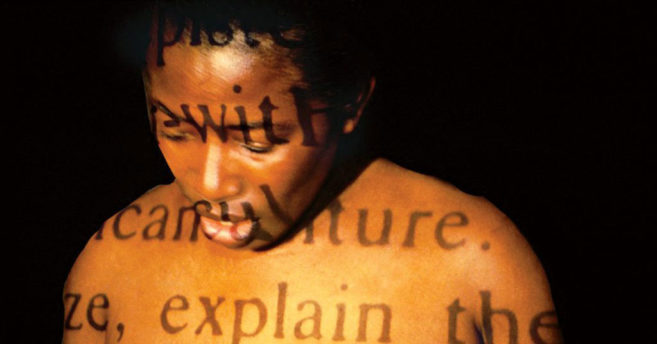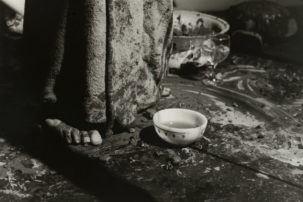Towards an African Canadian Art History: Art, Memory, and Resistance, edited by Charmaine A. Nelson, is the first book to break new ground in the underdeveloped field of race and blackness in Canadian art history. Spanning histories from 1752 to 2012, this collection of essays addresses the African diaspora in Canada through topics ranging from cultural resistance, institutional critique, contemporary art, blackface minstrelsy and newspaper classifieds showing runaway slaves and slaves for sale. The contributors assert that Black art history has been present in Canada for centuries, but has been ignored by dominant historical narratives, and deserves scholarly as well as popular attention. It is a fitting achievement for Nelson, who continues to be the only Black tenured art historian in Canada.
Throughout the chapters, the contributors position Black people in Canada as an integral part of Canada’s historic and contemporary cultural landscape. This research introduces much-needed nuance for how we rethink race, multiculturalism and belonging in Canada, in particular an acknowledgement that our moral role as abolitionists in the American Underground Railroad has eclipsed our understandings of Canada’s own Black history, like its implication in transatlantic slavery. Nelson demonstrates this through her continued analysis of the oil painting known as Portrait of a Negro Slave or Negress (1786) by French-Canadian artist François Malépart de Beaucourt, which was retitled Portrait of a Haitian Woman in 2011. The painting depicts a smiling Black woman, her breast exposed, holding a tray of exotic fruit. The work can be easily misread when the power dynamics and institution of slavery are erased from the painting’s discourse, as previous scholarship, and the retitling, has done. Nelson addresses the history of African slavery in Canada by arguing that the sitter, whom scholars believe to be Marie-Thérèse-Zémire, was enslaved by the artist and brought back from Haiti to Montreal before the Haitian Revolution.
Artist and contributor Deanna Bowen pulls readers nearer to the present day, reflecting on her family history, her art practice and the ways in which Black people in Canada have resisted violence and erasure. Her use of the archive challenges how institutions have silenced some of the more troubling histories of anti-Blackness in Canada, shedding light on the ugly face of Canadian white supremacy and the presence of the Ku Klux Klan here. Examples include works like Bowen’s 2013 project Invisible Empires, which displayed archival documents, pamphlets, ephemera and racist petitions, and restaged a 1965 CBC interview between a civil-rights activist and two Klansmen. More importantly, her interventions and activism highlight the work undertaken by Black people in Canada to minimize harm throughout history. As part of the exhibition, civil-rights era “Freedom Rides” were restaged with local artist-activists Shelley Hamilton, Reena Katz and Archer Pechawis to “lift the soul,” but also as a way to invite participants to reflect on Canada’s histories of racial violence. These efforts are ongoing.
Towards an African Canadian Art History asserts space for Black subjects and anti-racism research in Canadian art, culture and history. The book is a declaration of an emerging field, with ramifications for how we think about race and the institutional racism that persists. This collection confronts readers with a troubled cultural and social history that has yet to be acknowledged. Confronting and confessing this past reveals a fuller and more complex narrative beyond benevolent Canadian cultural myths, and such recognition is crucial for understanding—or acting on—uncomfortable issues of race and violence today.

 Cover of the book Towards an African Canadian Art History: Art, Memory, and Resistance.
Cover of the book Towards an African Canadian Art History: Art, Memory, and Resistance.
 Deanna Bowen, Invisible Empires, (detail), 2013.
Deanna Bowen, Invisible Empires, (detail), 2013.







